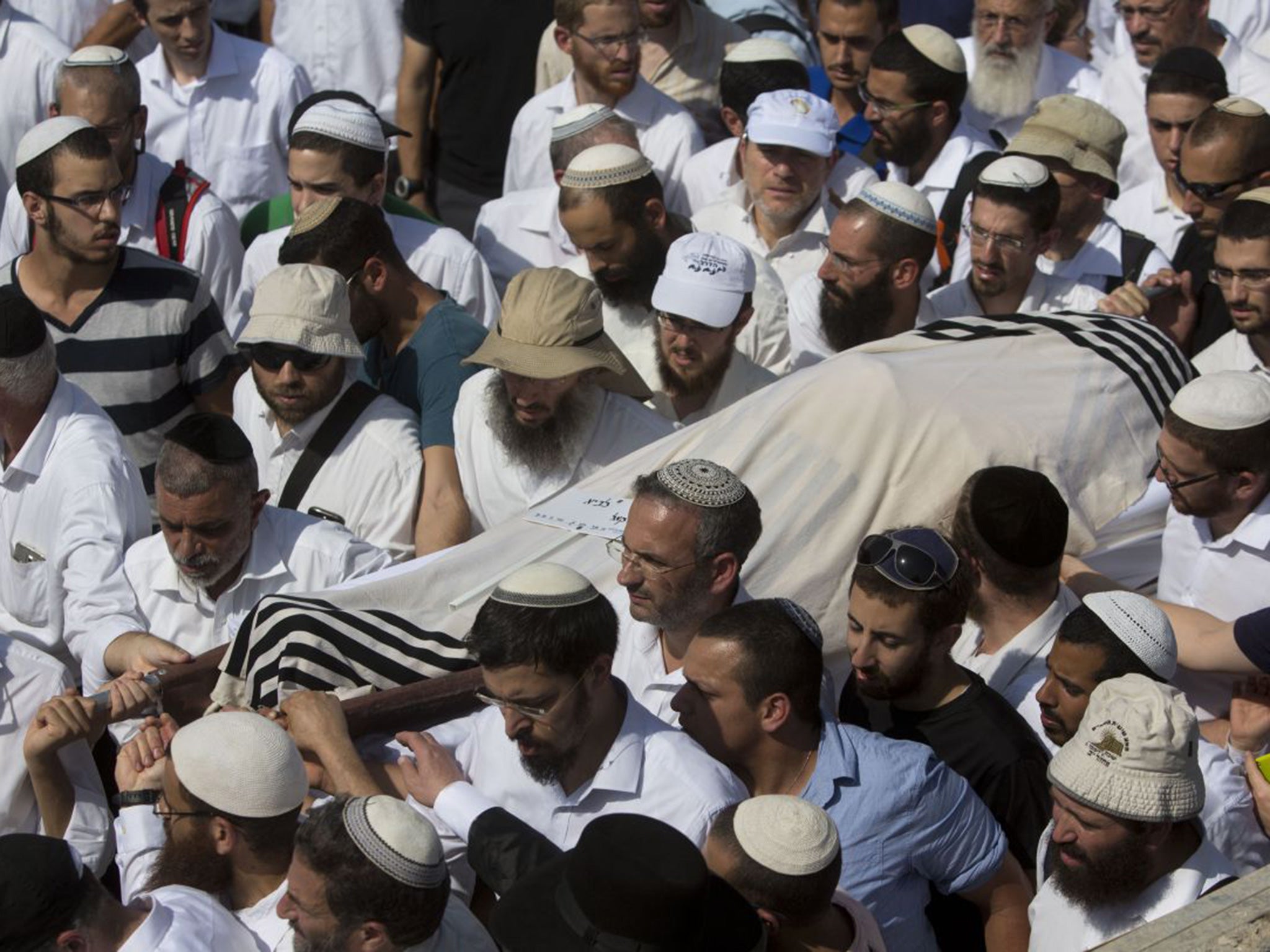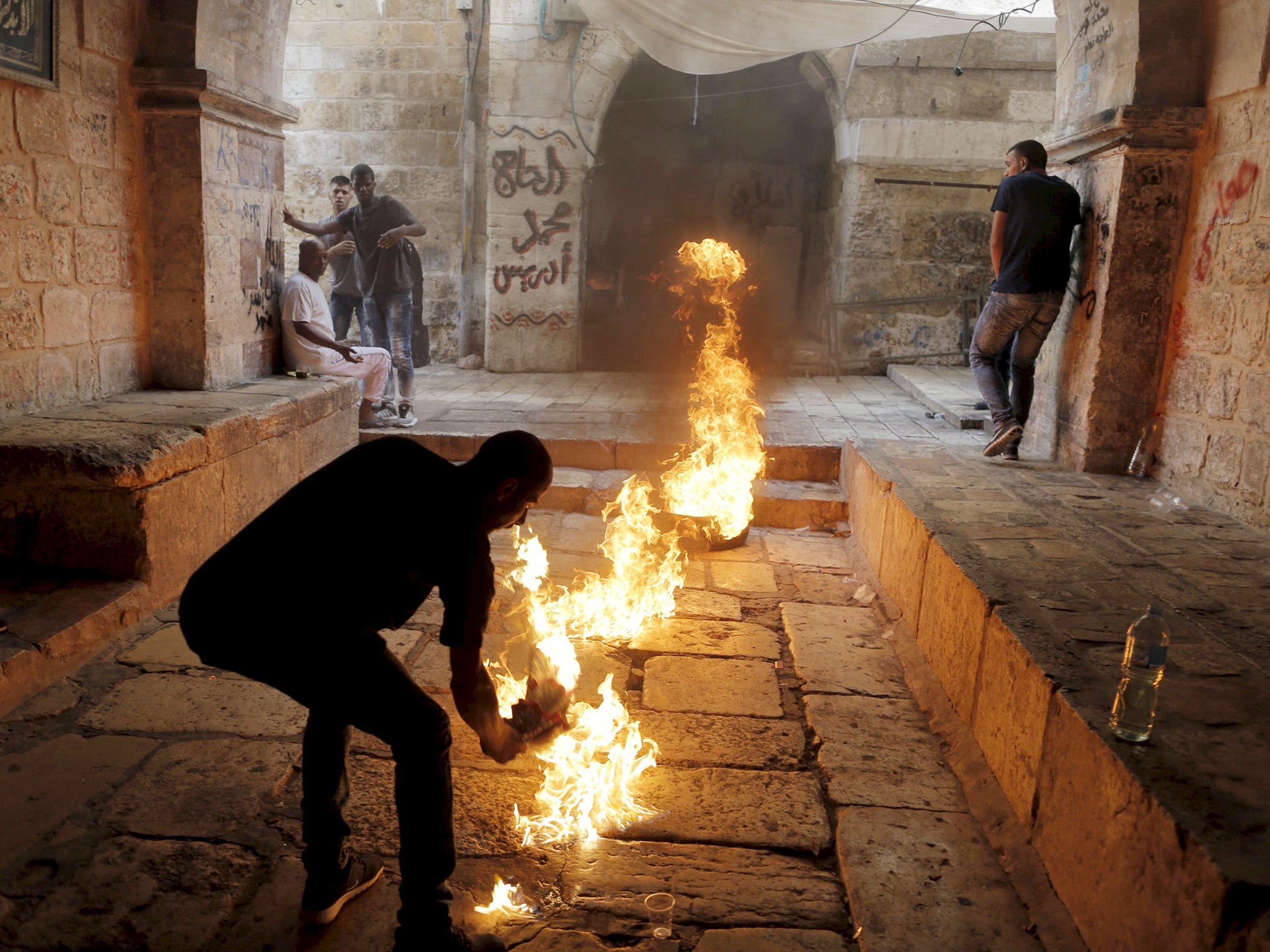In Jerusalem, religion is an excuse for violence, not the reason for it
In Israel, political vacuums are opportunistically filled by extremists


We’re counting the dead again in the Israeli-Palestinian conflict, crying over the terrible reports of lives cut short, of who did what to whom, and where; of the weapons used, the unbearable grief unleashed, the vengeance chillingly invoked.
In the past weeks, four Israelis and three Palestinians have been killed in gut-churning incidents. On Monday, a 13-year-old Palestinian, Abdul Rahman Shadi, was shot dead in Bethlehem by Israeli soldiers. Days before, two Israeli men, Aharon Bennett, 21, and Nehamia Lavi, 41, were stabbed to death in Jerusalem’s Old City by a Palestinian law student – who also injured Bennett’s wife and their two-year old son, before being shot dead by police.
Then an 18-year-old Palestinian, Huzeifa Othman Suleiman, was injured in clashes with the Israeli army in the West Bank town of Tulkarem and later died. And last week, Palestinian gunmen killed an Israeli Jewish couple, Eitam and Naama Henkin, in the West Bank.
We have seen stand-offs and clashes between Palestinians and Israeli security forces, especially in East Jerusalem and the Old City, with hundreds injured. And Palestinians in Jerusalem have been verbally and physically attacked.

As we count the toll and name the dead, the bloody, grinding narrative of the Israeli-Palestinian conflict has switched from “simmering tensions” to “escalating violence”. Everyday violence is now part of Jerusalem life. You sense it when Palestinian residents of this holy city, treated with animosity and suspicion, are deafened by the maddening hum of Israeli surveillance helicopters, when they face routine stop-and-searches and arrests by border police and often violent harassment from Jewish settlers. It’s there in the increasing presence of those settlers, not just in the expanding group of settlements that ring Jerusalem, but also in Palestinian neighbourhoods of East Jerusalem and the Old City. It’s there in the hate mobs and the chants of “death to Arabs” that spill on to the city’s streets.
In the absence of a political framework, it’s inevitable that these “simmering tensions” will spasmodically escalate. For where else can the anger and unresolved disputes go if there are no political channels through which to mediate?
Political vacuums are opportunistically filled by extremists. In Jerusalem, hardline Jewish national-religious settler groups have taken their fight from the West Bank to the city’s holy sites. Temple Mount, or Haram al-Sharif – the beautiful walled compound in the Old City that is sacred to Jews and Muslims – has long functioned according to status quo agreements. Under these, Jews can visit but not pray at the sacred site, while the Western Wall, just underneath, is reserved for Jewish prayer. But in recent years, movements calling for Jewish prayer rights have repeatedly flouted the codes, causing tensions and disturbances at the compound.
To be clear, this is not a religious coexistence campaign; Jewish religious leaders have for centuries ruled against Jewish prayer at Temple Mount. Indeed, the aims of the settler-led movement for additional worshipping rights become more transparent when you hear how they want to destroy the Dome of the Rock and replace it with a third Jewish Temple.
This would be bad enough in itself, but such extremist national-religious groups, once fringe and marginal, are now powerful and mainstream, partly because they are supported and funded by the current, settler-endorsing Israeli coalition.

A report from Ir Amim, an NGO focused on Jerusalem, said most of these mushrooming Temple Mount groups get funding from the Israeli government and from the Jerusalem municipality. For example, it says the Temple Mount Institute, which openly calls for the rebuilding of a Jewish temple at Haram al-Sharif, has been given more than $100,000 (£65,000) in government money.
Meanwhile, Israeli coalition members have backed the project and urge the government to assert its “sovereignty” over the sacred site. Uri Ariel, the Housing Minister, has led right-wing activist visits to the Temple Mount; Moshe Feiglin, a Knesset member, has repeatedly, and provocatively, visited the site – once when the Prime Minister had urged his colleagues to help calm tensions at the Temple Mount.
So you can see why Palestinians might be fearful, especially when the media is warning of an imminent Jewish takeover of a holy Muslim site. The Israeli government isn’t collectively clamouring for this, nor is it likely to happen – but the strength of the national-religious block within the current coalition has fuelled anxiety.
Meanwhile, the rise of Israel’s fundamentalist religious right is mirrored by the growing strength of a regional Islamist movement, calling on Palestinians to defend Jerusalem. Those Palestinian youths clashing with Israeli police in the Old City may well be heeding that call.

Constantly cited as the single most damaging obstacle to peace, and flouting international law, Israel’s settlements project just keeps growing. And why not, given that there are no international repercussions for doing so? Israeli leaders might feel their knuckles rapped, and the latest settlements expansion might be deemed “unhelpful” by the EU or the US – but until there’s an active intervention with financial consequences nothing will change.
We are condemning Israelis and Palestinians to pain, fear and grief, to tragedies and precious lives lost, to terror on the streets. We do this while pleading for this preventable suffering to stop, and all the while knowing that it will not.
Rachel Shabi is the author of ‘Not the Enemy: Israel’s Jews from Arab Lands’

Join our commenting forum
Join thought-provoking conversations, follow other Independent readers and see their replies